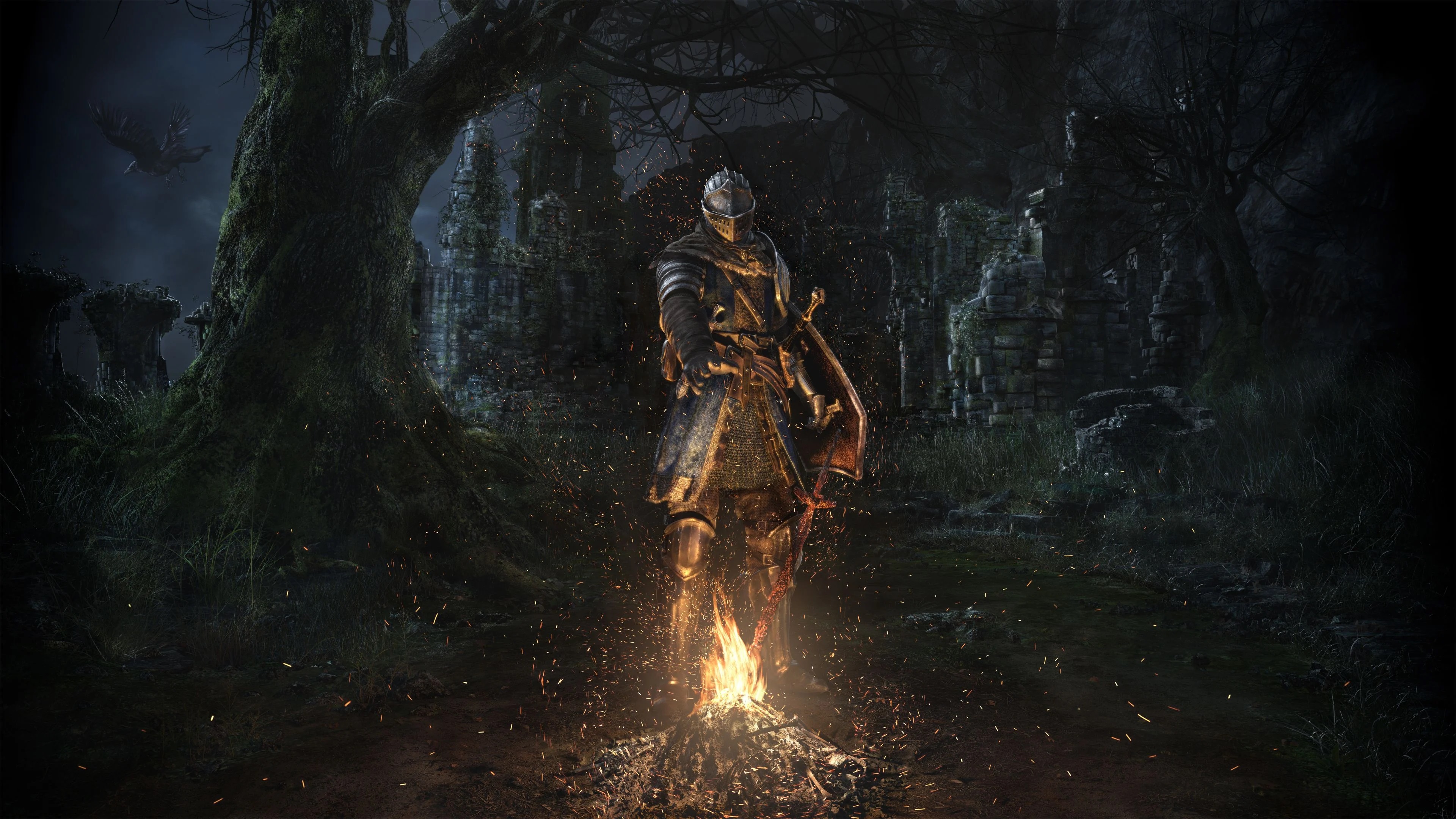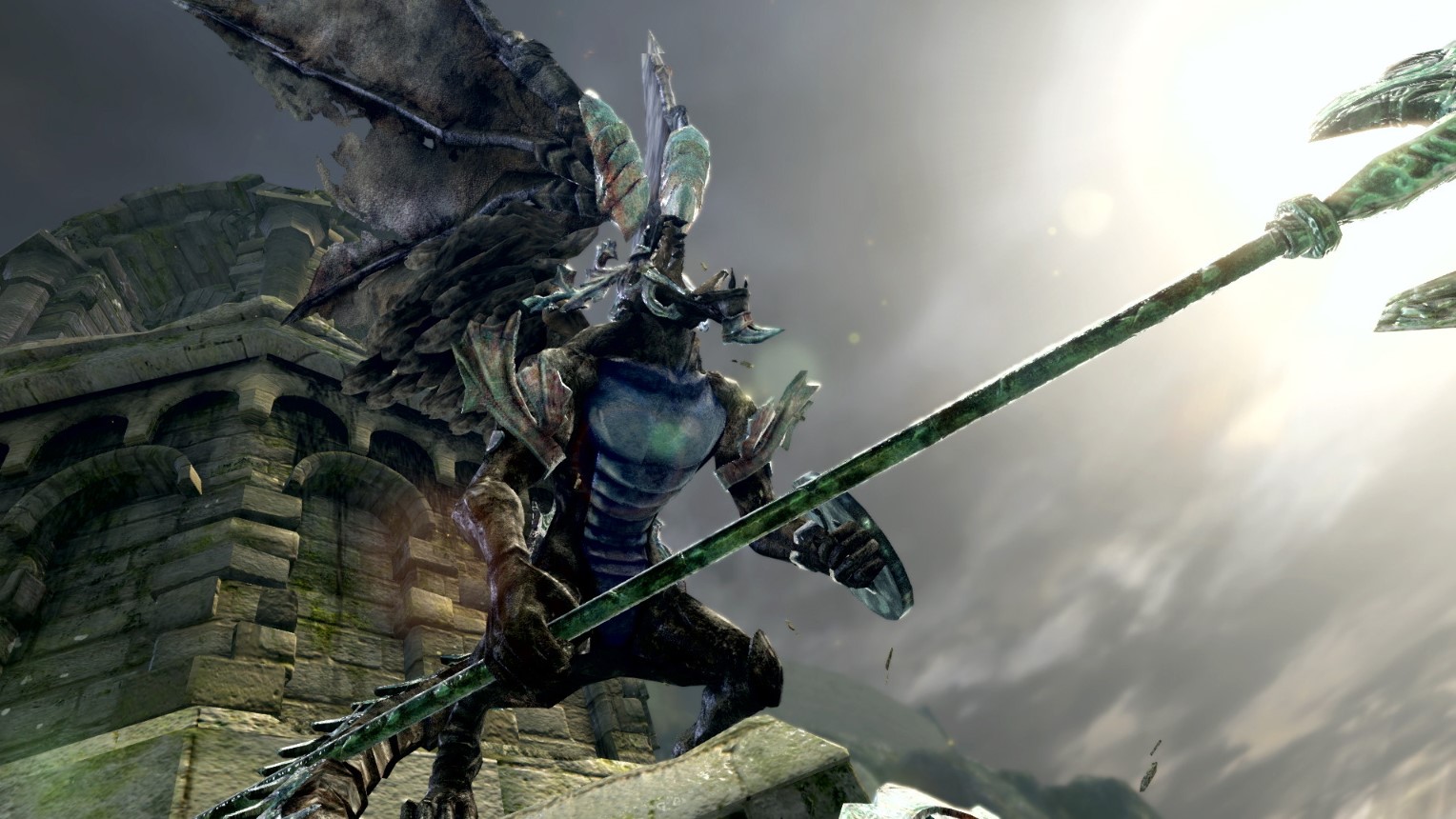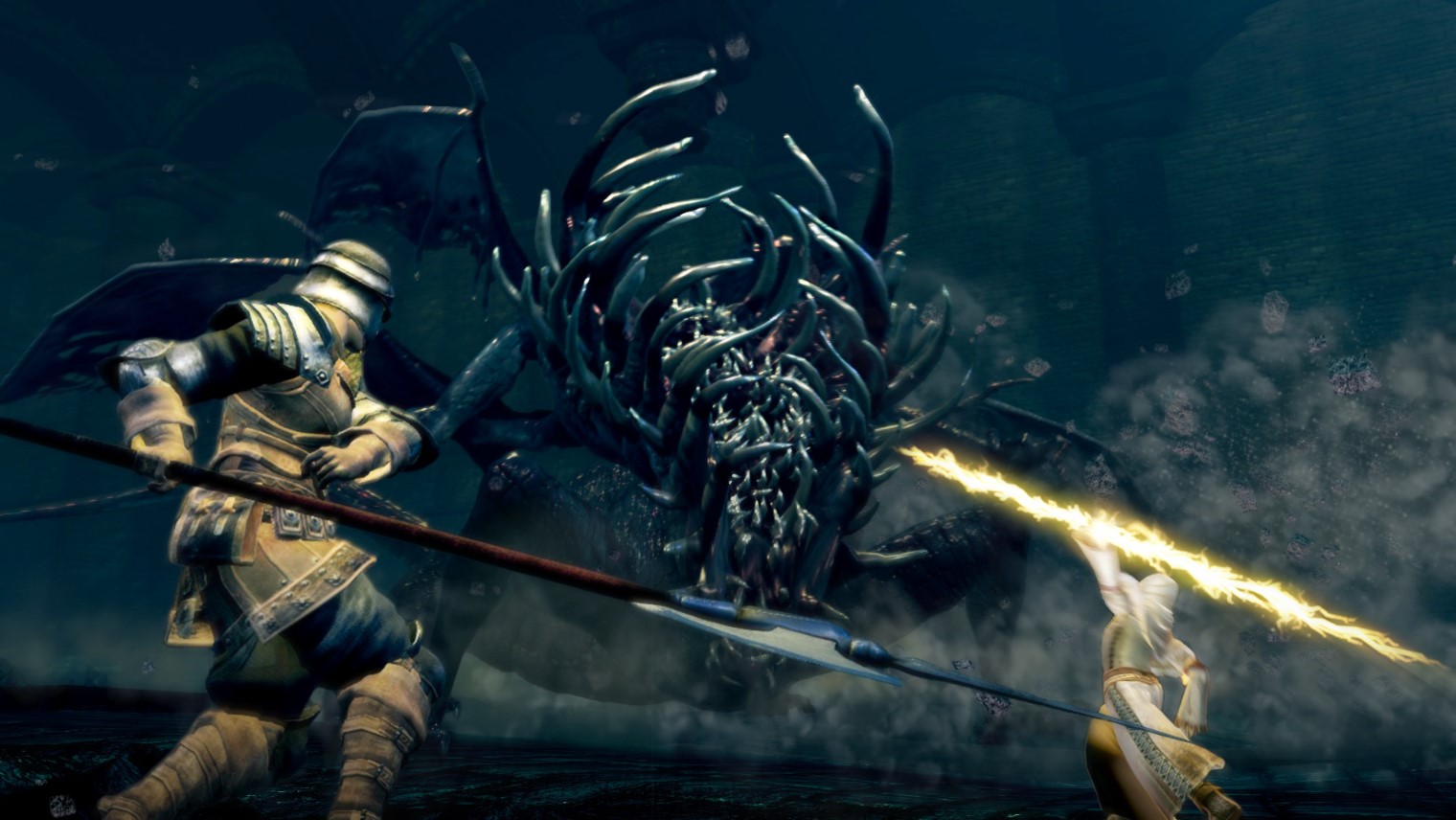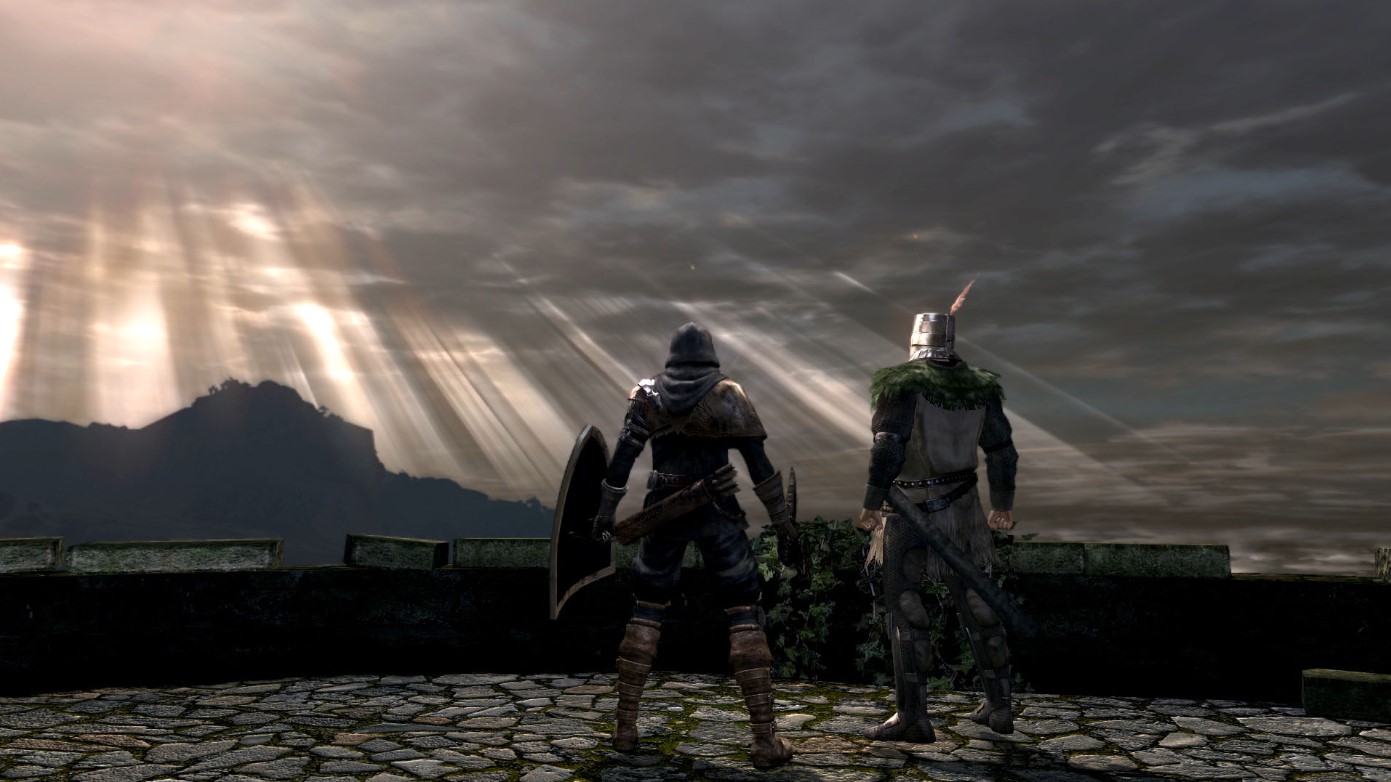Get good? Dark Souls isn’t really that hard, it’s just rather annoying
Patience is a virtue

Sign up for breaking news, reviews, opinion, top tech deals, and more.
You are now subscribed
Your newsletter sign-up was successful
It’s quite tricky to open an opinion piece about a game that’s universally considered to be rather difficult, suggesting that I’m fantastic at it. I’m not trying to say that. Despite the headline, I’m not really saying 'get good'. Rather, I’m trying to say that I think I might already be good - at least at what Dark Souls truly challenges its players with.
Dark Souls isn’t meant to be an easy game, and everyone knows that. Totally unrelated games that so much as dare to be slightly challenging can’t exist without being called “the Dark Souls of X” by gamers and critics. Regardless of whether it’s true or not, Dark Souls is often considered to be a benchmark when it comes to determining what truly classifies as a hard game. Heck, the entire soulslike genre - which can be used to describe difficult action titles in fantasy settings - is, as the name suggests, based on FromSoftware’s Demon’s Souls and Dark Souls series.
Great expectations

With that in mind, when I loaded up Dark Souls: Remastered for the first time last month, I went in expecting the worst. For context, I completed Elden Ring (my first FromSoftware game) last year. I rolled credits and beat the notoriously hellish Malenia fight solo, but I thought that the more linear nature of Dark Souls: Remastered could prove to be problematic, since I’d been introduced to the soulsborne world with all the freedom that Elden Ring offers.
To that end, I was stunned to find that Dark Souls: Remastered is actually rather manageable. Upon loading up the game, I destroyed its first boss, the Asylum Demon, on my very first go, and the Taurus Demon and Bell Gargoyles fell quickly after. I took out Havel the Rock along the way for good measure, because why not? So much progress was made in such a short amount of time that I was genuinely left wondering what all the fuss about the game’s difficulty had been about.
A little further in, and I began to understand the problem. Don’t get me wrong, I stand by what I said, most of Dark Souls isn’t that hard at all. In actual fact, it’s mostly just frustrating, and employs certain features for the sole purpose of winding players up and inconveniencing them to the point that it feels difficult, simply because it’s mentally a huge effort to overcome.
Tiresome, but not impossible

It’s pretty much unfeasible to walk into Dark Souls as a first-time player and not get annoyed at some point. As veteran players will know well, the placement of enemies is purposefully malicious, with foes hidden around corners waiting to ambush anyone who enters an area blissfully unaware of what awaits them. This can result in numerous deaths that don’t feel fair, and basically just function as setbacks rather than a way to develop your skill.
When I was heading back over the bridge to the Lower Undead Burg after finishing up at the Undead Parish, for example, the enormous red Hellkite Drake randomly appeared above me and set me aflame, killing me instantly, despite my full health. The next time I crossed, however, it didn’t even bother. Given its random nature, the death can’t really be classified as a player mistake. It’s simply the game’s way of asserting that it can just choose for you to die, if it wants. You’re at its mercy, and good luck to you if it decides to make you have a rough time.
Sign up for breaking news, reviews, opinion, top tech deals, and more.
Not only that, but Dark Souls loves to amp up the exasperation by making things take far longer than they need to. When attempting to fight the game’s tough bosses, there’s more often than not a long, dangerous path to tread each time you need to give it another go after a death. When the nearest bonfire (healing and respawn spot, for those uninitiated) feels like it’s miles away, it’s not being smashed to bits by the big bad enemy that’s dispiriting, it’s knowing that you’ve got to retrace your steps again. And again. And again.
I felt this strain when I was trying to beat the Lower Undead Burg’s Capra Demon. It was extremely time consuming to take out all the Attack Dogs and Undead Assassins on the way to the fight, but it was a necessity since they completely block the narrow path if you attempt to simply force yourself through. They’re not even particularly strong enemies - in fact, I quickly discovered that it’s possible to lead every single foe in the area to their doom by having them follow you to the fire by the area’s entrance - it just takes ages to do. As such, while it took a long time to take down the boss, the vast majority of that time wasn’t actually spent fighting it, but getting to the fight.
Skill issue

Ultimately, all of this compounds into one key takeaway - Dark Souls is very easy if you’re a patient person. Anyone who can adapt to dealing with the slog of repeatedly retracing their steps and facing the wrath of sneaky enemies waiting to take them down at every turn probably won’t find this classic action RPG that strenuous at all, because these things aren’t based on skill. And isn’t that what difficulty is all about?
A hard game is one that challenges the player to improve, to learn from their mistakes and hone their skills until they can come out on top. It should make you develop as a player, and become adept in handling its systems, whether that’s in combat, problem solving, or whatever else the game has to offer.
Obviously, the Dark Souls experience isn’t totally without this - learning a boss’ attack patterns, for example, is a skillful thing, because that’s something that you can learn and improve at. However, things like a dragon being able to instantly kill you on a bridge at random, or wanting to put the game down because you’re fed up of having to trek back to boss arenas repeatedly aren’t skill-related at all. They’re added factors that serve to be punishing, basically just for the sake of being annoying, but they’re also the factors that pad out most of Dark Souls’ runtime.
You’d be forgiven for reading this and thinking that I’ve written Dark Souls: Remastered off as a game that’s just too infuriating to bother with, but that’s not the case. I’m actually really enjoying it, and that’s probably helped by the fact that I’m a fairly patient person who can brush most of the irritation off and carry on, even when things seem unfair. However, for better or worse, it’s undeniable that the game isn’t as traditionally challenging as most would lead you to believe.
If you’re looking for some more games to play, look no further than our recommendations for the best PS5 games and best PC games.

Catherine is a News Writer for TechRadar Gaming. Armed with a journalism degree from The University of Sheffield, she was sucked into the games media industry after spending far too much time on her university newspaper writing about Pokémon and cool indie games, and realising that was a very cool job, actually. She previously spent 19 months working at GAMINGbible as a full-time journalist. She loves all things Nintendo, and will never stop talking about Xenoblade Chronicles.